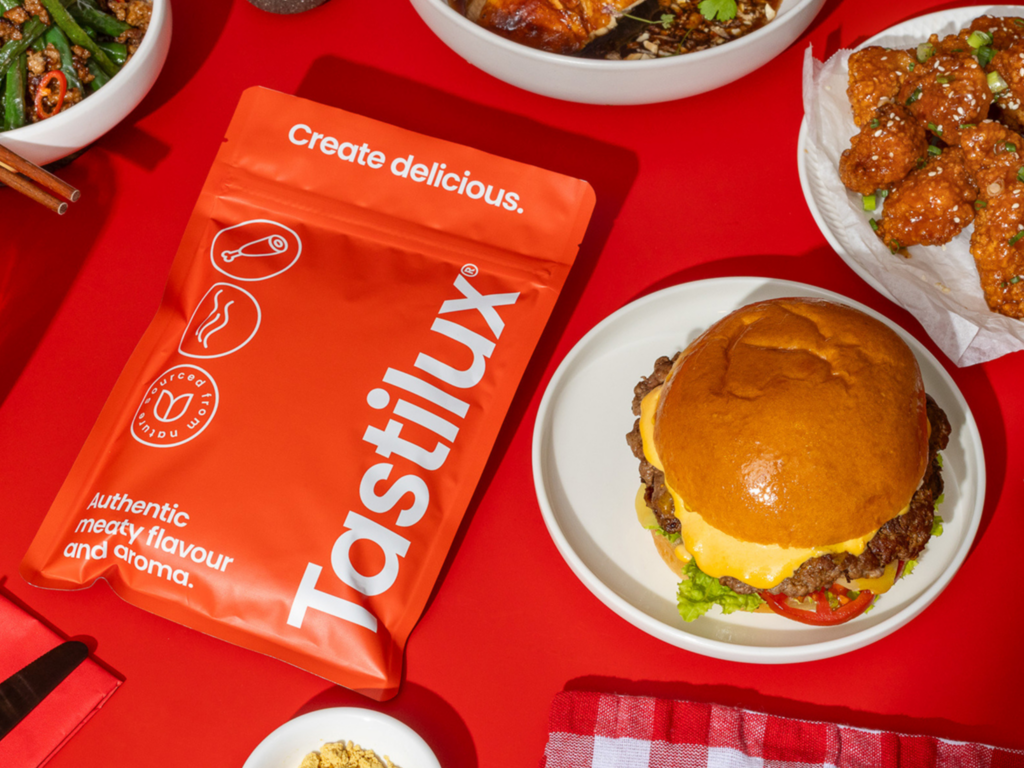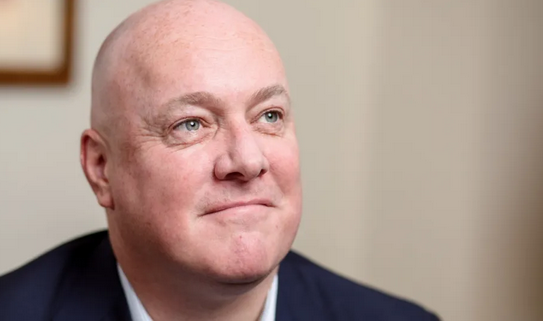Earlier this year, professional Israel supporter Bari Weiss became the head of CBS News. We know this wasn’t because of her journalistic talent or experience, which means it must have been her willingness to grovel before power. Now, everyone’s suspicions have been confirmed:
60 Minutes correspondent Sharyn Alfonsi warns that @bariweiss is turning them into “a stenographer for the state” https://t.co/J96kuVOwjZ pic.twitter.com/2Bpc7Mm2oW
— Krystal Ball (@krystalball) December 22, 2025
Bari Weiss
Weiss used to be a columnist at the New York Times, where she was known for being annoying and bad. It’s widely theorised she spent several months trying to get fired, but the New York Times had no bottom. The theory goes that Weiss wanted to use the sacking as a jumping off point to launch a career as a maligned free-thinker, and when she didn’t get that, she simply quit and acted like she’d been hounded out.
This is from her resignation letter, which actually has its own menu option at the top of her site:
My own forays into Wrongthink have made me the subject of constant bullying by colleagues who disagree with my views. They have called me a Nazi and a racist; I have learned to brush off comments about how I’m “writing about the Jews again.” Several colleagues perceived to be friendly with me were badgered by coworkers. My work and my character are openly demeaned on company-wide Slack channels where masthead editors regularly weigh in. There, some coworkers insist I need to be rooted out if this company is to be a truly “inclusive” one, while others post ax emojis next to my name. Still other New York Times employees publicly smear me as a liar and a bigot on Twitter with no fear that harassing me will be met with appropriate action. They never are.
While it’s true colleagues shouldn’t mock one another’s opinions in most jobs, that obviously isn’t the case when you’re job is OPINIONIST. It’s especially not the case when you’re opinions are terrible:
"Hatred of Israel cannot be distinguished from hatred of the Jewish people. Incontestably now, anti-Zionism is antisemitism."
Please read @DrMichaelOren on the war against the Jews:https://t.co/MnvCrrnogj
— Bari Weiss (@bariweiss) October 27, 2023
Weiss is the person who coined the term ‘Intellectual Dark Web’ by the way – a group which was inexplicably named after the part of the internet where all the child porn is:
An alliance of heretics is making an end run around the mainstream — and finding enormous new audiences thirsty to discuss subjects that have become taboo. Meet the Intellectual Dark Web: https://t.co/iveK9LoXPd
— Bari Weiss (@bariweiss) May 8, 2018
The Intellectual Dark Web incorporated some of the most laughable figures of the modern day, including Jordan Peterson, Joe Rogan, Ben Shapiro, Bret Weinstein, and Majid Nawaz.
Summarising who Weiss is, Defector wrote:
Weiss, an empty-suit nullity whose very raison d’être is to speak comfort to power, feels that her news organization cannot proceed with the story without the willing participation of its villains, even when those villains have ignored appeals for their perspective. As has been pointed out by Alfonsi—who was already reporting for CBS News when Weiss was an undergraduate, and who has been doing stories for 60 Minutes for a decade—this absurd position allows the most brazenly dishonest and media-hostile administration in living memory to dictate the boundaries of CBS News’s reporting.
On Bari Weiss, it can’t be said enough how laughable, phony and ironic it is that a person who spent years trying to silence Palestinian professors and get them fired (and has never apologized for it) has rebranded themselves as an advocate for free speech and academic freedom.
— Laila Al-Arian (@LailaAlarian) January 31, 2022
Spiked
The documentary in question covers the plight of Venezuelan men that Trump deported to a maximum security prison in El Salvador. Correspondent Sharyn Alfonsi went straight for Weiss’s throat, as Yashar Ali reported:
In the email — which was first reported on by the Wall Street Journal — Alfonsi compares the decision to spike the story to the Jeffrey Wigand scandal.
Jeffrey Wigand was a tobacco industry whistleblower whose interview was initially withheld by CBS in the 1990s over legal concerns, a decision that severely damaged the network’s credibility and became one of the most infamous episodes in broadcast journalism.
Alfonsi writes that Weiss declined to speak with her about the decision.
She also says the move was political rather than editorial.
“Our story was screened five times and cleared by both CBS attorneys and Standards and Practices,” Alfonsi wrote. “It is factually correct.”
Bari Weiss attempted to justify her decision as follows:
My job is to make sure that all stories we publish are the best they can be. Holding stories that aren’t ready for whatever reason — that they lack sufficient context, say, or that they are missing critical voices — happens every day in every newsroom. I look forward to airing this important piece when it’s ready.
Since then, Weiss – a career reject who was parachuted into her position by wealthy interests – has chided those who spoke out, accusing them of not being proper journalists:
I want to say something about trust: our trust for each other and our trust with the public.
The only newsroom I’m interested in running is one in which we are able to have contentious disagreements about the thorniest editorial matters with respect, and, crucially, where we assume the best intent of our colleagues. Anything else is absolutely unacceptable.
Weiss is confused because she thinks it’s the journalist’s job to launder the dirty secrets of their bosses, not to – you know – do journalism.
Imagine spending your life in journalism only to have some person float in to dictate what you can and can't report — even though she's never broken a story or even reported — and whose sole qualification is she is as devoted to Israel as the new family that just bought CBS: https://t.co/4kRyMsrrpu
— Glenn Greenwald (@ggreenwald) December 22, 2025
In the same call, Weiss said:
I held a 60 Minutes story because it was not ready. While the story presented powerful testimony of torture at CECOT, it did not advance the ball—the Times and other outlets have previously done similar work. The public knows that Venezuelans have been subjected to horrific treatment at this prison. To run a story on this subject two months later, we need to do more. And this is 60 Minutes.
We need to be able to get the principals on the record and on camera. Our viewers come first. Not the listing schedule or anything else. That’s my north star and I hope it’s yours, too.
So far, it seems like no one is buying that she pulled it for reasons of professionalism:
Bari Weiss lied about being a champion for free speech and a bunch of media outlets and journalists who knew better pretended that such a silly and easily disprovable lie was true for so long because they wanted to present pronouns and asking for representation as great evils
— Zito (@_Zeets) December 22, 2025
Here's the deleted trailer for the now-"delayed" segment. It's almost impressive how much damage Bari Weiss has done to CBS News in such a short period of time.
Someone quickly schedule a prime-time Town Hall with Alan Dershowitz to rectify the harm:pic.twitter.com/382gRG5Lgp https://t.co/3gHRKNES2y
— Glenn Greenwald (@ggreenwald) December 21, 2025
a more extreme version of the direction CBS was heading pre-Ellison/Weiss. Recall 60 Mins producer Bill Owens quit Apr 2025 citing interference from then-Paramount head Shari Redstone after she broke the taboo against corporate meddling and scolded 60 Mins RE: their Gaza coverage https://t.co/De1nq0Ixsy
— Adam Johnson (@adamjohnsonCHI) December 22, 2025
In another email, Weiss stated that the documentary doesn’t sufficiently both-sides the story. You know – the story of Trump deporting Venezuelans to what you could arguably describe as an ‘El Salvadorian torture fortress’:
This is so insane https://t.co/8Wqj1B7LNJ
— Taylor Lorenz (@TaylorLorenz) December 22, 2025
The Epstein Continuum
At the same time that Bari Weiss has been spiking credible journalism, she’s also been organising town hall debates featuring prominent associates of the dead paedophile Jeffrey Epstein. First up was Alan Dershowitz:
For reference: https://t.co/afLgUuXexC
— Drop Site (@DropSiteNews) November 25, 2025
If you don’t know who Alan Dershowitz is, that must be nice!
Now This summed him up in the following video, but the TLDR is that he’s a lawyer who enthusiastically specialises in defending rapists:
The next Epstein associate up to bat is Steven Pinker:
Bari Weiss is literally a gay woman btw. So pathetic to suck up to the very people who would kill us if it were 50 years ago. https://t.co/OijO0CYYrP
— grade a dyke (@smacofsky) December 21, 2025
Here’s a video of Pinker which came out in the latest release of the Epstein Files:
A creepy video showing Jeffrey Epstein and Harvard Psychologist Steven Pinker has been released in the Epstein files.
You can clearly hear a young child in the video, who is likely filming the two.
Steven Pinker's affiliations with Epstein will likely be revealed in the near… pic.twitter.com/0TE8GreSCH
— Lucas Herweyer (@LucasAHerweyer) December 20, 2025
Bari Weiss is using her platform to broadcast a debate between Steven Pinker and Ross Douthat. For those not in the know, Douthat is the dope who wrote the “Did Women Ruin the Workplace” times op-ed. And Pinker is famously all over the Epstein files. Like… all over them. pic.twitter.com/yU9bkEldUQ
— Alex Goldman (@AGoldmund) December 21, 2025
Unwise Bari Weiss
It’s hard to work out precisely what Bari Weiss thinks she’s doing, but it’s an absolute mess, we can tell you that much.
While rich people can parachute stooges like Weiss in, the companies still have to make money. Nobody is tuning in to watch the ‘Epstein Pals Tedium Hour’, and instigating weekly mutinies is going to turn away watchers in droves.
Given that Weiss keeps failing upwards, we’ve no doubt this catastrophe will only lead to greater positions of influence in the long run. In the meantime, sitback and enjoy her latest and greatest downfall.
Featured image via Guardian
By Willem Moore
This post was originally published on Canary.
 (@rainstormblue)
(@rainstormblue) 






 (@Sargon_of_Akkad)
(@Sargon_of_Akkad)  (@thrasher_night)
(@thrasher_night) 

 promises, manufactured grievance and permanent betrayal.
promises, manufactured grievance and permanent betrayal.



 (@Anonymoosh)
(@Anonymoosh) 
 A UN International Commission of Inquiry independently verified 7,000 pieces of evidence demonstrating widespread war crimes committed by the IDF,…
A UN International Commission of Inquiry independently verified 7,000 pieces of evidence demonstrating widespread war crimes committed by the IDF,… 





 Pexels
Pexels Pexels
Pexels Yan Krukau | Pexels
Yan Krukau | Pexels Pexels
Pexels









 Yet all this unfolds against the backdrop a party lurching towards its first conference with no clear agenda. What is Your Party, really? It’s like buying a painting that hasn’t been painted yet. Corbyn claims he doesn’t want to replicate Labour’s bureaucracy, so why is the room full of ex-Labour furniture? It’s easy to attack Labour’s failures, but what, specifically, will Your Party do differently?
Yet all this unfolds against the backdrop a party lurching towards its first conference with no clear agenda. What is Your Party, really? It’s like buying a painting that hasn’t been painted yet. Corbyn claims he doesn’t want to replicate Labour’s bureaucracy, so why is the room full of ex-Labour furniture? It’s easy to attack Labour’s failures, but what, specifically, will Your Party do differently?





 (@r1ckh0ward)
(@r1ckh0ward) 




 EXCLUSIVE FOOTAGE
EXCLUSIVE FOOTAGE